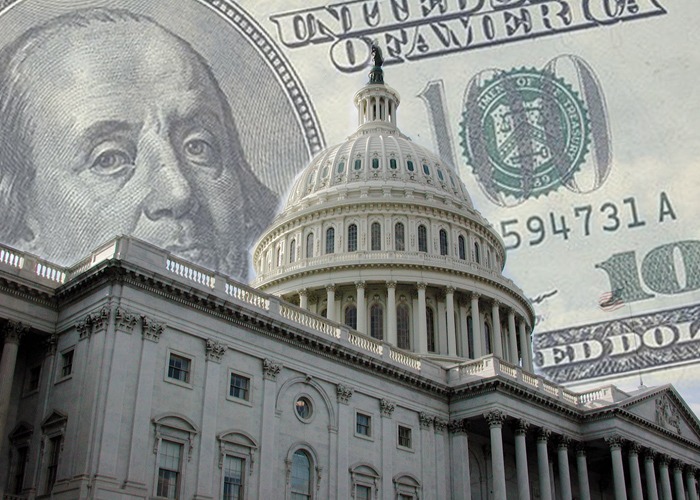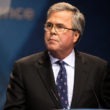These days, the courts are striking down campaign finance rules so fast that conservatives are positively giddy at the prospect that someday we could return to the good old days of 1900 when benevolent overlords, such as Ohio boss Mark Hanna, charged America’s largest corporations a percent of profits (known as the “GOP tax”) before writing laws.
| Real change will only come when we accept former Justice John Paul Stevens’ premise that the whole notion of “money equals speech” is idiocy. |
The latest conservative celebration is about McCutcheon v. FEC, which will likely abolish limits for wealthy donors to federal races. During oral arguments on McCutcheon, Justice Samuel Alito dismissed concerns over the corrupting power of money in politics as “unrealistic” and “wildly hypothetical”—even though every example presented during the hearing actually happened.
But with all the attention on McCutcheon, another decision is being overlooked: in October, a federal judge in New York ruled that billionaires could give unlimited sums to “advocacy committees.” That case, New York Progress and Protection PAC v. Walsh, involves a last-minute attempt by millionaires to derail Bill de Blasio’s mayoral victory in New York City.
In Walsh, the judge ignored claims that state government can regulate political committees. Instead he applied the logic of the Supreme Court’s Citizens United ruling, saying there was no proven corrupting influence from unlimited gifts to “independent expenditure” organizations because they are (in theory) “independent” from politicians. Also, since a 1976 court ruling holds that money equals political speech; he concluded New York was illegally limiting speech.
It would be nice if judges could remember Justice Byron White’s warning from his dissent in the 1976 Buckley v. Valeo decision: He said judges know squat about political campaigns.
Then again, White thought politicians regulate themselves. Consider what happened when Ruth Johnson, the very conservative Secretary of State for Michigan, tried to overturn a policy that allowed “issue” foundations to support or attack politicians and judges with undisclosed money. When Johnson announced she would require full disclosure, Michigan politicians cut her off at the knees, claiming they were “codifying” the Supreme Court’s ruling protecting secret cash.
Perhaps Michigan Republicans should learn to read: since 2002, every member of the High Court (except for Clarence Thomas) has endorsed the principle of full disclosure for advocacy committees—though they aren’t too helpful on saying how that should be done.
Johnson seems to have forgotten how Spencer Abraham, a past Michigan Republican Party leader, started this mess by creating “issue” foundations in 1990 to screen favored candidates so Republicans could pack Michigan’s Supreme Court—as well as hiding the source of the money.
Not that disclosure is perfect: no law has ever solved the old trick of “policy meetings,” in which organizations let politicians mingle with special interests, after which, donations magically appear.
And the high court is well aware that this goes on: in a 2009 case, Don Blankenship, CEO of Massey Coal, wanted to oust the Chief Justice Warren McGraw of West Virginia’s Supreme Court. Even more, Blankenship also wanted assurances that McGraw’s replacement would decide in his favor on an appeal before the court.
During the judicial hearing, plenty of evidence was produced on how prospective judicial candidates in West Virginia attended “issue conferences,” where they filled out “questionnaires” detailing how they would rule on cases. Those documents were crucial to the decision by Blankenship and Massey Coal to invest over $3 million to win the seat for one Brent Benjamin.
Blankenship told several people and even a few reporters how he met several times with Benjamin and how the future chief justice promised to “listen to him”—but in court papers, Blankenship insisted he never met Benjamin.
In the end, five justices were so revolted they ruled (without exactly saying how) that big money should have less influence on judicial elections. Still, four Justices were not impressed and voted to apply the same rules to themselves that they have applied to any other politician—donors can spend all they want, because money is speech, so judges and politicians can ignore billionaires as easily as they ignore most citizens.
After 40 years of dealing with this issue I’ve come to the conclusion real change will only come when we accept former Justice John Paul Stevens’ premise that the whole notion of “money equals speech” is idiocy. Sure, Stevens will grant you, money can be used to generate political speech, but money was never speech itself, money is merely property—and like all property, some people have more, some have less. Even the 16th amendment says that money is property, so like any other kind of property, you can regulate it.
Peter Lindstrom is a political consultant and researcher. He lives in Washington, D.C.







0 Comments